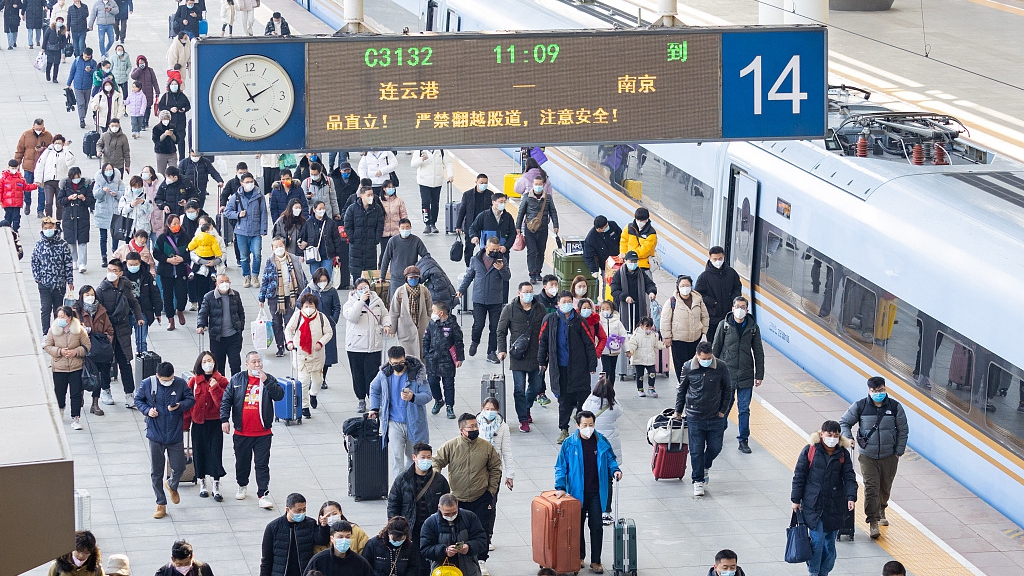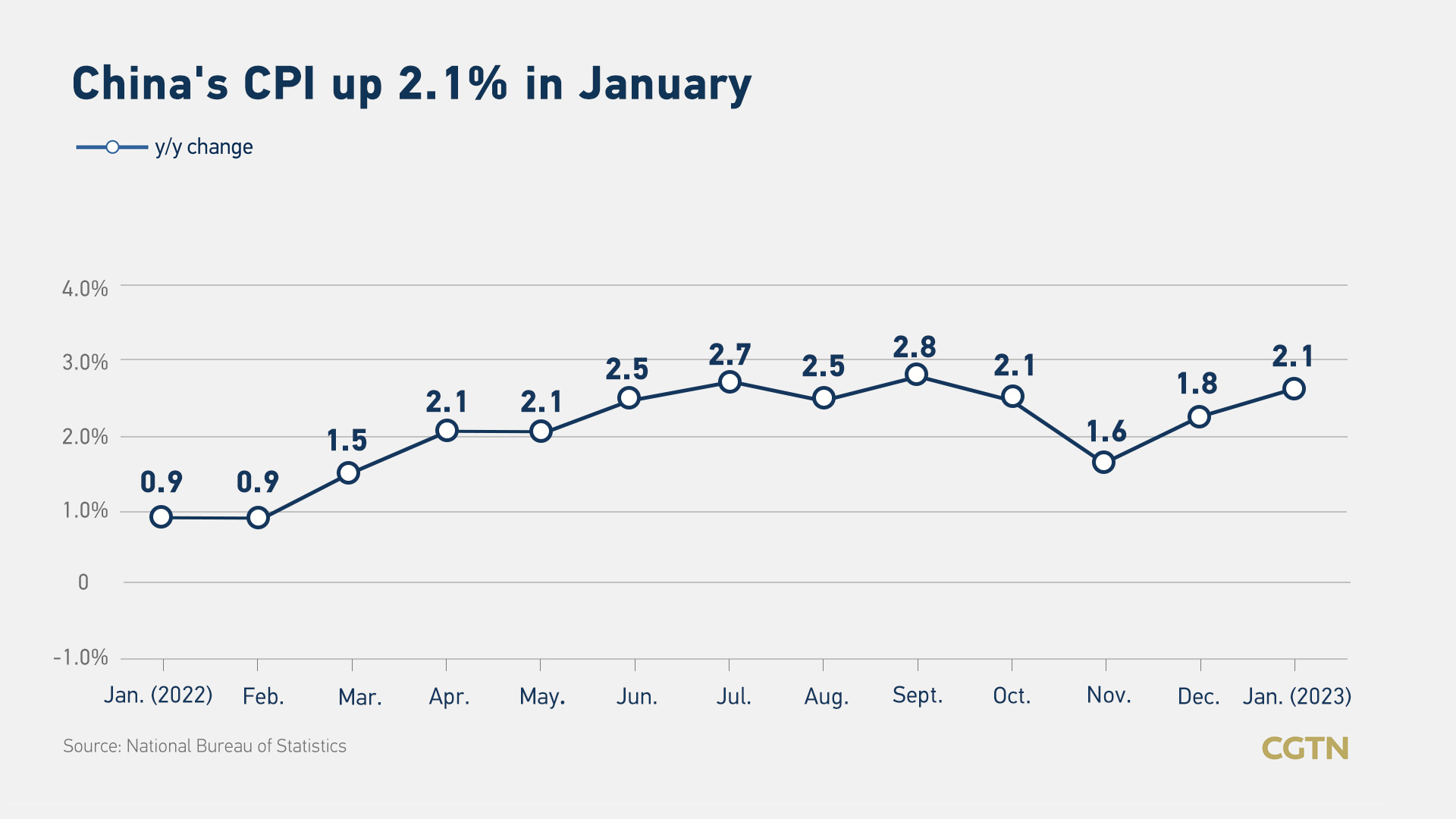
Passengers at Nanjing Railway Station during the Spring Festival travel rush in east China's Jiangsu Province, January 30, 2023. /CFP
Passengers at Nanjing Railway Station during the Spring Festival travel rush in east China's Jiangsu Province, January 30, 2023. /CFP
China's consumer inflation rose in January as the Spring Festival holiday and the relaxation of pandemic restrictions bolstered demand.
China's consumer price index (CPI), the main gauge of inflation, rose 2.1 percent year on year in January, data from the National Bureau of Statistics (NBS) showed on Friday.
Food prices rose 6.2 percent for the month, following an annual rise of 4.8 percent in December. However, pork prices grew slower than the previous month, increasing by 11.8 percent. The core CPI, excluding food and energy prices, was 1 percent higher than a year earlier.
There was a surge in travel and entertainment demand over the Spring Festival holiday, with prices for flight tickets jumping 20.3 percent, cinema tickets climbing 10.7 percent, and travel costs up 9.3 percent from the previous month.

China anchored its consumer price index at 2 percent in 2022 despite record price increases in other major economies. The country has pledged to continue to keep prices stable this year.
China's industrial product prices continued to fall in January due to fluctuations in international crude oil prices and a decline in domestic coal prices, noted Dong Lijuan, a senior NBS statistician.
The producer price index (PPI), which reflects the cost of goods at the factory gate, edged down 0.8 percent from a year earlier, following a 0.7 percent annual decline in December.
The price of petroleum, coal and other fuel processing industries rose by 6.2 percent in January, down from a 10.1 percent annual jump in December.
China's economic activities rebounded in January following the lifting of pandemic restrictions, with activity in the manufacturing and service sectors returning to growth, official data showed.